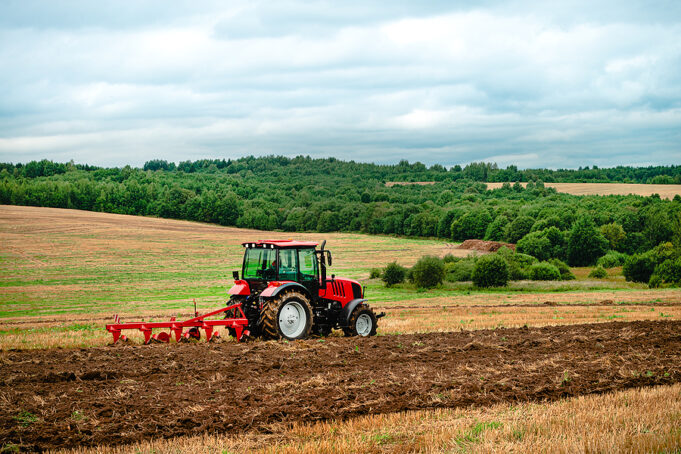NATCHEZ, Miss.—“How many farmers in the room?” asked National Black Farmers Association (NBFA) founder and president Dr. John W. Boyd Jr. during his opening remarks to the 33rd Annual National Black Farmers Conference held at the Hotel Vue in Natchez, Mississippi. “If you’re farming, you’re not farming because of the money. I don’t farm because of the money and neither do you,” he said.
“We’re farming because we love to farm. We love being out there on the farm. We love the feeling and the satisfaction that we get from being a farmer. With that said, we have to deal with Mother Nature. We have to deal with droughts, floods and tornadoes. We have to deal with the Mississippi River tides going up and down. We have to be able to dance and balance all of those things,” he noted.
“But what we shouldn’t be asked to deal with is discrimination. Unfair lending practices and all these other obstacles we face,” he said. This NBFA conference, held October 27-28, came on the heels of a yearlong 39-city tour helping to draw conclusions and devise next steps targeting the survival of small family farms for generations to come.
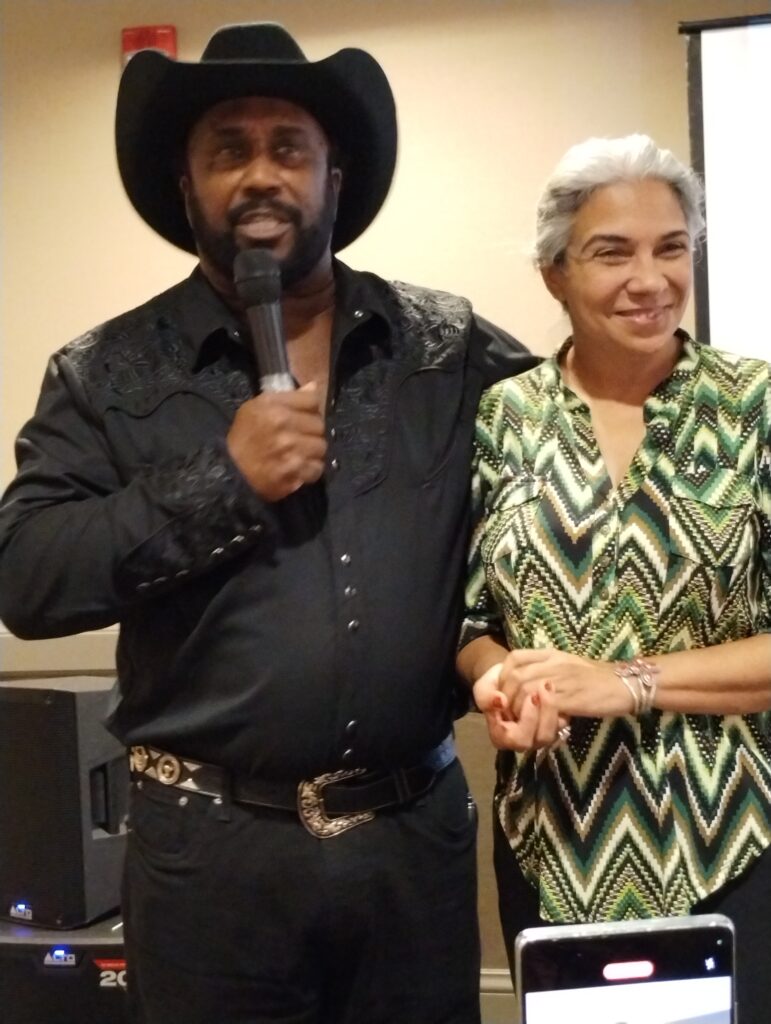
“Our goal for the conference was to really have the farmers come together, to convene bringing farmers from all around the country into one place where they could have conversations and network and get information. That was the objective,” began Kara Brewer Boyd, wife of Dr. Boyd. She is an enrolled member of the indigenous Lumbee Tribe of North Carolina and serves as NBFA’s program director. “We’re here from South Carolina, Mississippi, Alabama, Colorado, Chicago, Maryland—from across the United States.
We had new beginning farmers, experienced farmers, women farmers, male farmers, young farmers—student farmers out of college and brought all of these areas of expertise together and collectively walked away with goals, strategies and plans. Plans not only to understand and meet filing deadlines for the financial assistance programs but to work together to build better farming operations.”
Black farmers and ownership: An endangered species?
Where Blacks once boasted ownership of 16 million acres of farmland and one million Black farmers across America a little less than a century ago, the latest U.S. Census Bureau states the number of Black farmers now sits at 49,000 and approximately four million acres. In an exclusive interview with The Final Call, Dr. Boyd spoke of the plight facing the Black farming population.
“This is the first full tour I made across the country since 2010. I am very concerned that we have become such an older population and that there’s just not enough young people looking to be full-time Black farmers,” he said.
“We have to do something. I don’t see the government saving us. I don’t see corporate America saving us. We are going to have to save ourselves by putting more young Black farmers on the farm and passing on generational wealth. These farmers are dying. They ain’t got no wills; no heirs to property, so that farm immediately comes out of production and that’s hurting us,” he said.
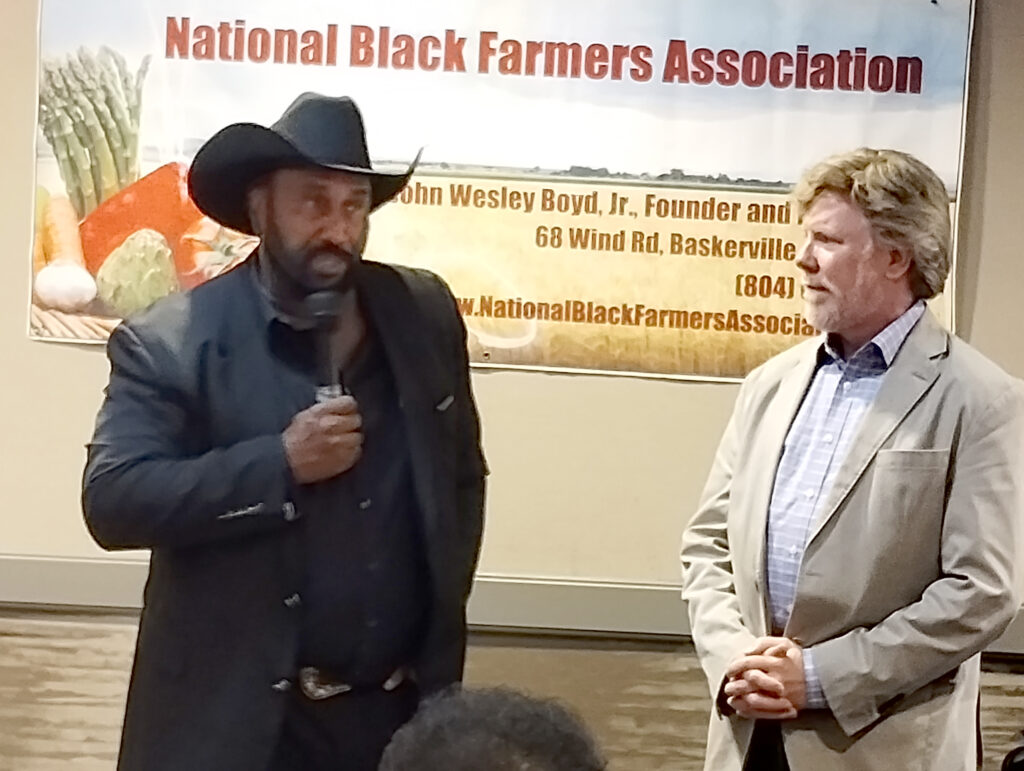
“I was glad to do the tour because I did not know we had so much support around the country. I was glad to see so much attention as people came to the regional meetings because according to White folks we don’t exist. These conferences show that there is a lot more of us than they realized as far as population,” he continued.
The conference addressed many issues and shed light on issues for many first-time attendees. NBFA has more than 130,000 members. Fewer than 200 were in attendance and nearly half of them had to leave after the first day to get back to their respective farms. This has been a very tough year for farmers due to the crushing droughts. Very little to no rainfall reduced the production of hay farms therefore hay farmers raised their prices to the opportunity scarcity gave them. Though most Black farmers work all year long they compete with White counterparts at tremendous disadvantages.
“I’m very proud of each and every one of you for standing in the gap. For not just giving up, but enduring,” commented Natchez Mayor Dan M. Gibson as he came personally to welcome NBFA to the city. Hailing from a farming family himself, he acknowledges most Black farmers in Mississippi hadn’t come to farming under their own volition, but they were forced to do so through slavery.
“I believe a great part is to come for your many years of labor. And I pray that we are coming to a time where this country will rightfully make available the programs needed to help a family farm survive and definitely to end racism and to bring about a more equitable center,” he said.
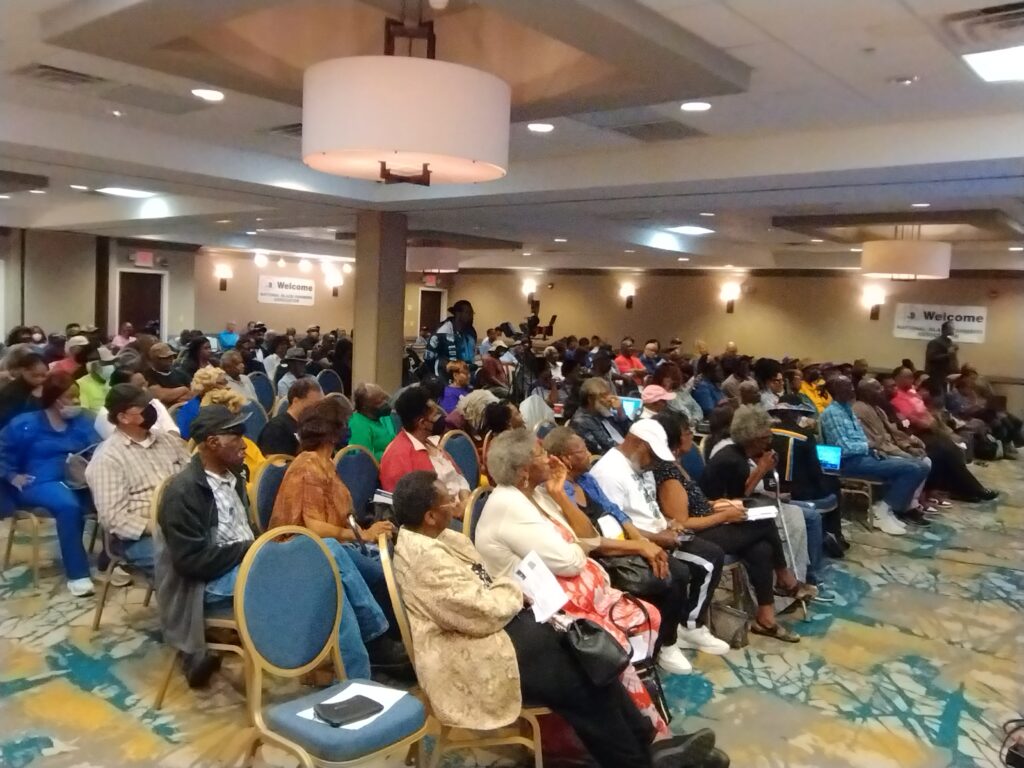
‘We want our money!’
In October 2022, civil rights attorney Ben Crump on behalf of Dr. Boyd—one of four plaintiffs—filed a lawsuit against Congress claiming they broke a contract when lawmakers were allowed to repeal a more than $4 billion debt relief package for Black and Indigenous farmers which offered each farmer 120 percent debt relief. Dr. Boyd told The Final Call that more than 16,000 Black farmers are affected by the USDA’s actions when this promised relief, signed into law by President Joe Biden, had now been frozen due to reverse discrimination lawsuits by White farmers who have received over the past year more than $29 billion in subsidies as well as debt relief.
“When we didn’t get the debt relief, it took the land initiative off of the table,” Dr. Boyd said. “Because those Black farmers expecting the debt relief, would have gotten their diesel trucks back from USDA through the 100 percent loan forgiveness attached to the diesel trucks and an additional 20 percent to pay the taxes on it. They’re saying this is reverse discrimination because we got debt relief. But they fail to acknowledge that the whole 30 years I was asking for debt relief, they got all the debt relief and have been getting it with ease.”
The group of people who never got it, Dr. Boyd declared, are Blacks. “White farmers have been getting all of this aid and they got this little five stinking billion dollars that they don’t want us to have. They don’t want us to have tangible money and they don’t want us to keep the land. So, their ultimate goal is to take the land,” he charged.
“Their ultimate goal is to take the land. I want to be very, very clear. That’s the ultimate goal. Sid Miller (Texas Agriculture Commissioner, whose group of White farmers filed lawsuits against the Black farmers’ debt relief) knows the same thing that I know. When we get debt relief, it freed up the land for those Blacks who were still farming and indebted to USDA for the diesel trucks provided through loans would now have their diesel truck and land free and clear.”
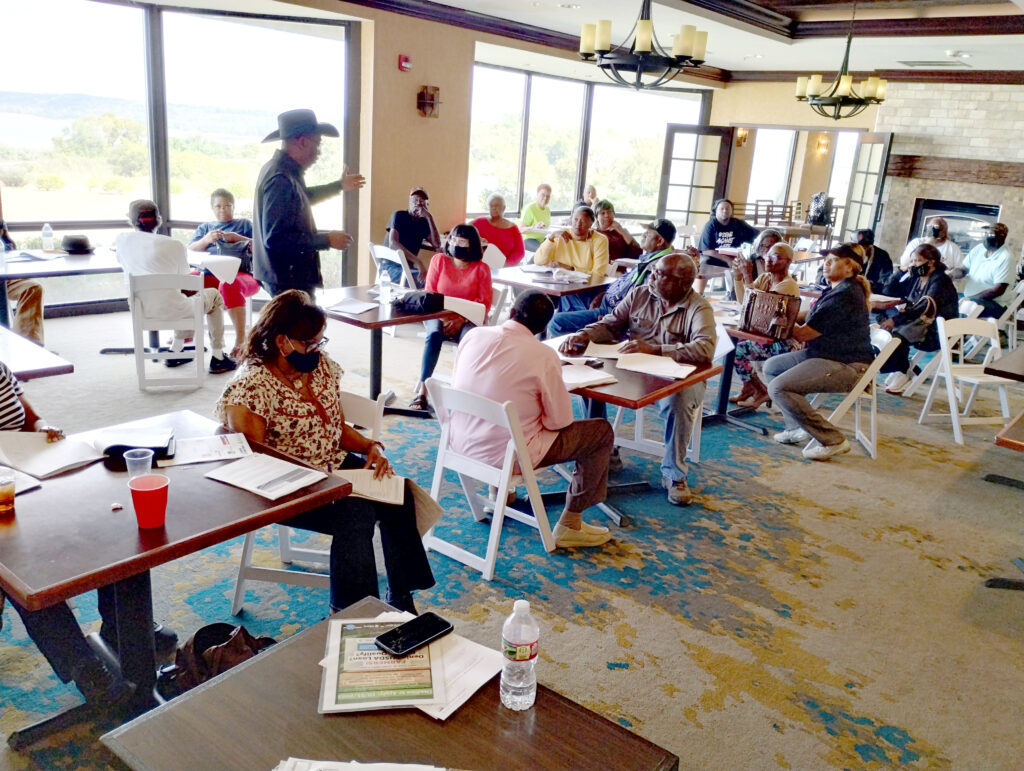
Dr. Boyd continued, “Imagine having 500 acres and a diesel truck you now own. You can do anything you want when you own the land. You can sell timber. You can do anything you want when you own the land free and clear. They knew I understood that. So, we hired Ben Crump to file suit on behalf of those 16,000 Black farmers and those of color, who are eligible for debt relief and we are still in court,” he closed.
Last year a hip-hop-styled video called “The Land” was released featuring Dr. John W. Boyd and KJ “Skippa Mak” Marley, son of Kymani Marley, an international hip-hop artist, infusing reggae and dancehall, while invoking the unmistakable musical spirit of his legendary grandfather Bob Marley to speak truth to power. “We want to reach the young and all. We want this video to go viral,” said Dr. Boyd. The video can be viewed on YouTube at https://www.youtube.com/watch?v=8mgAphV-oN0.
The two-day conference in Natchez also included a series of workshops, plenaries, and breakaway sessions where attendees were introduced to a plethora of agencies providing applications and education from a myriad of service providers and agencies to enhance skills and build capacity for small, limited-resource, and socially disadvantaged farmers, ranchers and landowners. Presentations focused on transferable knowledge programs such as farm credit and financing, farm management, developing markets, and environmental protection.
At the conference conclusion, a banquet dinner was held highlighting the evening with celebration, honor, networking, and thanksgiving. Included in this celebration were NBFA honorees as well as a surprise recommitment of vows between Dr. and Mrs. Boyd on 10 years of marriage.
“Every step you take, every step you make, requires land ownership. You can either be on your own land or trespass on someone else’s,” states Dr. Boyd in “The Land” video. “From slaves to sharecroppers, to horrific Jim Crow Laws. We are still here fighting for survival. Stole all the land from the Indians. Now they’re stealing all the land from Black farmers. We want our land. We want our damn money! We want reparations! Pay us now!” he closed. For more information, visit www.blackfarmers.org.












